The Lives, Times, And Deaths Of Stars
The Lives, Times, and Deaths of Stars
Who among us doesn’t covertly read tabloid headlines when we pass them by? But if you’re really looking for a dramatic story, you might want to redirect your attention from Hollywood’s stars to the real thing. From birth to death, these burning spheres of gas experience some of the most extreme conditions our cosmos has to offer.

All stars are born in clouds of dust and gas like the Pillars of Creation in the Eagle Nebula pictured below. In these stellar nurseries, clumps of gas form, pulling in more and more mass as time passes. As they grow, these clumps start to spin and heat up. Once they get heavy and hot enough (like, 27 million degrees Fahrenheit or 15 million degrees Celsius), nuclear fusion starts in their cores. This process occurs when protons, the nuclei of hydrogen atoms, squish together to form helium nuclei. This releases a lot of energy, which heats the star and pushes against the force of its gravity. A star is born.

Credit: NASA, ESA and the Hubble Heritage Team (STScI/AURA)
From then on, stars’ life cycles depend on how much mass they have. Scientists typically divide them into two broad categories: low-mass and high-mass stars. (Technically, there’s an intermediate-mass category, but we’ll stick with these two to keep it straightforward!)
Low-mass stars

A low-mass star has a mass eight times the Sun’s or less and can burn steadily for billions of years. As it reaches the end of its life, its core runs out of hydrogen to convert into helium. Because the energy produced by fusion is the only force fighting gravity’s tendency to pull matter together, the core starts to collapse. But squeezing the core also increases its temperature and pressure, so much so that its helium starts to fuse into carbon, which also releases energy. The core rebounds a little, but the star’s atmosphere expands a lot, eventually turning into a red giant star and destroying any nearby planets. (Don’t worry, though, this is several billion years away for our Sun!)

Red giants become unstable and begin pulsating, periodically inflating and ejecting some of their atmospheres. Eventually, all of the star’s outer layers blow away, creating an expanding cloud of dust and gas misleadingly called a planetary nebula. (There are no planets involved.)

Credit: NASA, ESA, and the Hubble Heritage Team (STScI/AURA)
All that’s left of the star is its core, now called a white dwarf, a roughly Earth-sized stellar cinder that gradually cools over billions of years. If you could scoop up a teaspoon of its material, it would weigh more than a pickup truck. (Scientists recently found a potential planet closely orbiting a white dwarf. It somehow managed to survive the star’s chaotic, destructive history!)

High-mass stars
A high-mass star has a mass eight times the Sun’s or more and may only live for millions of years. (Rigel, a blue supergiant in the constellation Orion, pictured below, is 18 times the Sun’s mass.)

Credit: Rogelio Bernal Andreo
A high-mass star starts out doing the same things as a low-mass star, but it doesn’t stop at fusing helium into carbon. When the core runs out of helium, it shrinks, heats up, and starts converting its carbon into neon, which releases energy. Later, the core fuses the neon it produced into oxygen. Then, as the neon runs out, the core converts oxygen into silicon. Finally, this silicon fuses into iron. These processes produce energy that keeps the core from collapsing, but each new fuel buys it less and less time. By the point silicon fuses into iron, the star runs out of fuel in a matter of days. The next step would be fusing iron into some heavier element, but doing requires energy instead of releasing it.
The star’s iron core collapses until forces between the nuclei push the brakes, and then it rebounds back to its original size. This change creates a shock wave that travels through the star’s outer layers. The result is a huge explosion called a supernova.

What’s left behind depends on the star’s initial mass. Remember, a high-mass star is anything with a mass more than eight times the Sun’s — which is a huge range! A star on the lower end of this spectrum leaves behind a city-size, superdense neutron star. (Some of these weird objects can spin faster than blender blades and have powerful magnetic fields. A teaspoon of their material would weigh as much as a mountain.)

At even higher masses, the star’s core turns into a black hole, one of the most bizarre cosmic objects out there. Black holes have such strong gravity that light can’t escape them. If you tried to get a teaspoon of material to weigh, you wouldn’t get it back once it crossed the event horizon — unless it could travel faster than the speed of light, and we don’t know of anything that can! (We’re a long way from visiting a black hole, but if you ever find yourself near one, there are some important safety considerations you should keep in mind.)

The explosion also leaves behind a cloud of debris called a supernova remnant. These and planetary nebulae from low-mass stars are the sources of many of the elements we find on Earth. Their dust and gas will one day become a part of other stars, starting the whole process over again.
That’s a very brief summary of the lives, times, and deaths of stars. (Remember, there’s that whole intermediate-mass category we glossed over!) To keep up with the most recent stellar news, follow NASA Universe on Twitter and Facebook.
Make sure to follow us on Tumblr for your regular dose of space: http://nasa.tumblr.com.
More Posts from Pandora-allan and Others
“When you talk, you are only repeating what you already know. When you listen, you might learn something new.”
— Dalai Lama
Hey, what do you think about Medea? I know people portray her as a cruel witch but I think she never had someone besides her than her aunt; Circe. She really deserved to be happy, right?
This is the story of the wicked villain’s daughter who whispers in the hero’s ear and teaches him how to overcome every trial. Through her magic she transmutes the most insurmountable labor into triviality, she foils the villain’s pursuit so that her father cannot catch them in their flight.
(she chops her brother into pieces and casts the pieces to the sea, so that her father’s fleet must be hindered dredging up every bloody portion so that their king might bury his son)
She is wise, and she is good, and she is wonderful, filled with wonders, and the story never thinks to ask:
Why, with all her knowledge and her power, in all the years before the hero came, did she do nothing to curb her father’s wickedness?
---
When Medea excoriates Jason for his betrayal, he snaps back in retort:
“You exaggerate your favors,” he sneers. “Should I thank you? Did you act purposefully? Or was it not the shafts of Eros, as Aphrodite willed, that compelled you to save my life?”
---
Medea loves her children dearly, and she kills them, and in that she is beyond compulsion.
---
We might ask instead what purpose Jason served in the story, if Medea and the Argonauts accomplished all his feats for him. Did Jason on his own slaughter the six-armed Gegenees? Did he know how to withstand the fiery breath of the Kolkhis Bulls? Did he know the dangers of sowing the dragon’s teeth, how to lull the sleepless dragon into sleep?
Could he have outplayed the sirens, killed the bronze man Talos on his own initiative?
What was the point of him, then?
(the answer is: it was his story)
---
When Medea returns to her home of Colchis many years later, after all the unpleasantness with Jason is well and done, she discovers her tyrannical father has been overthrown by his brother Perses, the new king.
Unfortunately for her, this is no happy ending. Perses hopes to purge her father’s bloodline and eliminate all other claimants to the throne.
So, she kills him.
(she is good at that, killing family)
It was said that when the Golden Fleece was removed from Colchis, so too would the king be removed from his throne. Medea returns, years later, and kills her uncle and restores her father to the throne, and the old wrong is finally set right.
.
The dead are all still dead, of course.
---
After Medea kills her brother, the gods demand she must be cleansed.
The Argo sails through storm and hellish steam and darkness, and finally docks at Circe’s island. Circe slits the throat of a piglet, stains their hands with its blood. The hearth fires blaze bright, and many cakes are brought out to be burnt as offerings to Zeus.
“There,” Circe says afterwards. “All done.”
Medea sits next to her on the polished chairs, looking at the thin dark line of pig’s blood still beneath her fingernails. “I don’t know that I can ever be cleansed of this.”
Her aunt smirks. “Too bad,” she says. “Ceremony’s over. You are.”
“I just -” she says, and looks towards the Argo where Jason is waiting, and feels her throat close up with emotion. “I feel like I’m going insane. I don’t know what I’ve done. I feel like I would do anything for him.”
“The only morality in the world is love,” Circe says. “Everything else is mere ambition. Falling headlong into someone else’s story, and selfishly living out your own.”
“I helped kill him,” Medea says. “I killed my brother.”
“He was hunting you down. They would have killed you both, if they caught you.” Circe looks meditatively into the fire. “The gods have done worse, for worse reasons. Zeus, the Cleanser of Sins, once tried to devour his own daughter.”
They are silent for a time. The fire crackles cozily, and the burnt fragrance of cake hangs in the air. “I don’t deserve any of this,” Medea says.
“Ah, that’s the cruelty of it.” Circe sighs. “You are part mortal and part divine, a truth unto yourself, consequence unmoored from judgement.” She lays a hand over Medea’s. “You don’t deserve a damn thing.”
---
When Medea kills her children, she weeps.
(but she has wept before, and gone on to do more wickedness, and so tears are neither salve nor salvation)
After her children are dead, Helios sends down a golden chariot from the heavens to carry her away, to carry away with her the bodies of her children, so that she might bury them with her own two hands in Hera’s sacred grove, safe from any further indignity or harm.
(as a sign from the gods, this might be taken as approval)
---
This is how Medea’s story goes: Time passes and wounds slowly heal. She falls in love again, and has another child. She falls into old habits and once again tries to kill her lover’s son, but this time is unsuccessful. She is forced to flee, and at last returns to her father’s kingdom. She kills her uncle. More kinblood is shed.
Her son Medus grows up to take the throne, and he is so renowned in conquest that the Aryans rename themselves the Medes, in his and his mother’s name.
He is her darling son. She loves him dearly.
.
This is a happy ending, perhaps.
OK,I think this is a topic we all need to talk about. The way many writers and artists in various fandoms will constantly whitewash characters in them and when they are confronted, will just be like.. it's hard to research all this.
Its really not.
Many POC writers who do not belong to a predominantly white country have had to google and research stuff so that we dont get called out on our lack of knowledge on something we haven't even been exposed to.
Where I'm from, we don't have prom or school dances. Our grading system and education system works differently but I still made a point to just spend 15 minutes googling these details so I didnt make mistakes in my writing.
The sad thing is, we don't get that same respect back. When we finally have shows or characters that represent us, they are promptly whitewashed.
End of story: It's really hurtful and saddening so if you could please not do this.
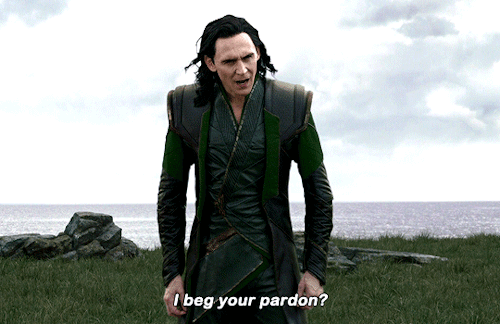
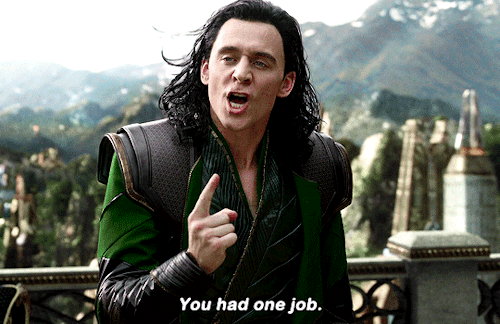
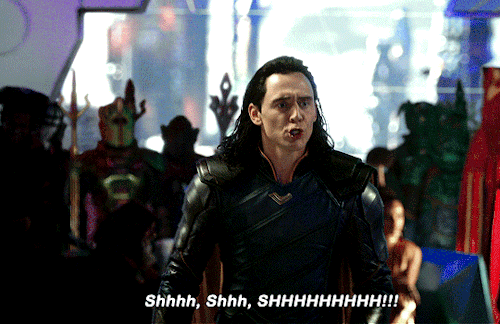
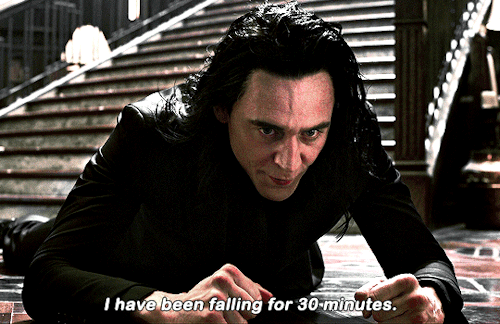

Big #mood










greek mythology | txt/twitter posts
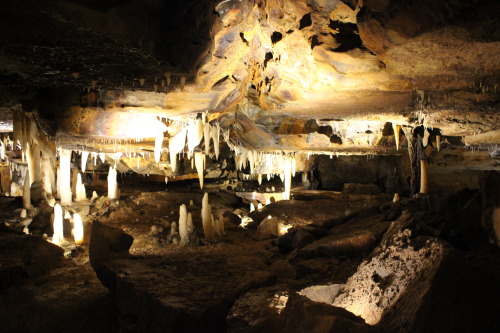
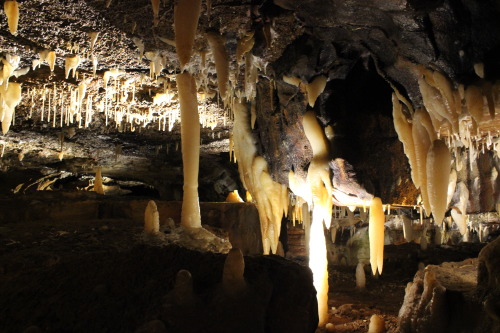

Ohio Caverns - West Liberty, OH
To be below the earth is my happy place.

Jeyna is canon in my heart and that’s all that matters
My parents rather have a busy life, and only things they cares about me are my education and health. I asked about this from my mom once, and her answer was, "I simply trust you more than you know!"
But still, I wish she could spend more time with me so I could really tell her that I'm not the same stubborn and witty girl who is apparently trying to soak up their attention. But, the reality is always too rude.
Revolutionary parenting hack:
If your child is in the middle of some activity and clearly enjoying it (and wasn't supposed to be doing something else instead), DO NOT interrupt them and have them do chores that will "only take 5 minutes or so!"
You haven't asked them to do anything before they got out the Legos, started reading a chapter of their book or painting the complicated picture, or began playing their video game.
As a result of being repeatedly interrupted, they will learn that their presence in public space of the household=availability to do chores, so they will make themselves scarce so you can't find them and order them around. They will also become suspicious of your efforts to engage with them as they play, as they've learned that these pleasantries are a prelude to "Take out the trash", or "move your boots and vacuum the entryway, there's dirt everywhere ".
"But I need my children to help me around the house!", I hear you cry. I understand. Children should not be treated like royalty and left to their own devices 24/7.
An alternative is to give the kids a clearly delineated chore chart and stick to it, resisting the urge to add anything to it. There are some chores that are easier and quicker with two people, though. A (in my opinion) even better option is to divide the child's day into "on-duty" and "off-duty " time. When they're on-duty, you can interrupt them as before, but you have *consulted with your child beforehand * and they understand that during this time they can relax, but they must be ready to jump in and lend a hand.
That way they won't start trying to level up in their video game or break out the clay and make stuff. When they are off-duty, you leave them alone and their only responsibilities are to clean up whatever mess they make at the end of this time.
Also, if they are tearing around the house or whining about being bored, don't make them do chores so they will "have something to do"; this could make the child conflate extra chores with punishment for whining and make them reluctant to help out when you randomly tell them to at other times because they might think they're being punished but they have NO IDEA WHAT THEY DID. And IMO children should see chores as things everyone has to do no matter what, not punishments.
I may seem unqualified to offer parenting advice as I have no kids, but I was talking with my dad today and he said: "I wish you didn't hide from us in your room so much, but every time your mom walked by she'd give you a chore to do, so I can't blame you for that." A kid who hides in their room to play has an entirely different relationship to the family than the child who sprawls on the livingroom floor and excitedly describes the city they are building out of Legos.
And today, in times of Covid I play a complicated game of hide-and-seek with my mother as I try to do my online coding homework and apply for jobs. I am now attempting to turn my bedroom into my own tiny office because if I work in our home office, she'll find me and go "I can't attach this file to my email," and so on.
Children *have* to obey their parents when they are young. But true respect and honoring collective responsibilities is stronger than forced obedience. If you demonstrate to your children that you respect them and their time, they will reciprocate.
-
 1983coolieinked liked this · 6 months ago
1983coolieinked liked this · 6 months ago -
 two-shadows liked this · 8 months ago
two-shadows liked this · 8 months ago -
 ourrosouro liked this · 8 months ago
ourrosouro liked this · 8 months ago -
 66stuart liked this · 1 year ago
66stuart liked this · 1 year ago -
 magicdreamspoetry liked this · 1 year ago
magicdreamspoetry liked this · 1 year ago -
 maxxxmuscle liked this · 1 year ago
maxxxmuscle liked this · 1 year ago -
 spensaweight77 liked this · 1 year ago
spensaweight77 liked this · 1 year ago -
 millerman1969 liked this · 1 year ago
millerman1969 liked this · 1 year ago -
 roguedemon7 liked this · 1 year ago
roguedemon7 liked this · 1 year ago -
 setphaserstosquee liked this · 1 year ago
setphaserstosquee liked this · 1 year ago -
 chosovixen liked this · 1 year ago
chosovixen liked this · 1 year ago -
 lobohuntsrelentlessly liked this · 1 year ago
lobohuntsrelentlessly liked this · 1 year ago -
 ridazzle reblogged this · 2 years ago
ridazzle reblogged this · 2 years ago -
 ridazzle liked this · 2 years ago
ridazzle liked this · 2 years ago -
 oxfordsonnets reblogged this · 2 years ago
oxfordsonnets reblogged this · 2 years ago -
 darklepastels reblogged this · 2 years ago
darklepastels reblogged this · 2 years ago -
 fhazar liked this · 2 years ago
fhazar liked this · 2 years ago -
 bombil-fry reblogged this · 2 years ago
bombil-fry reblogged this · 2 years ago -
 tipzyness liked this · 2 years ago
tipzyness liked this · 2 years ago -
 what-do-life-is liked this · 2 years ago
what-do-life-is liked this · 2 years ago -
 horses-who-smile liked this · 3 years ago
horses-who-smile liked this · 3 years ago -
 ravenclaw-queen liked this · 3 years ago
ravenclaw-queen liked this · 3 years ago -
 quirkygoldfish liked this · 3 years ago
quirkygoldfish liked this · 3 years ago -
 interdimensional-chaos reblogged this · 3 years ago
interdimensional-chaos reblogged this · 3 years ago -
 crylittlebird liked this · 3 years ago
crylittlebird liked this · 3 years ago -
 dark-night-of-the-clownfish liked this · 3 years ago
dark-night-of-the-clownfish liked this · 3 years ago -
 ambar-a liked this · 3 years ago
ambar-a liked this · 3 years ago

Life is too short. that's it😋 "My past unshapely natural stage was the best... With just one flower flaming through my breast..."
155 posts